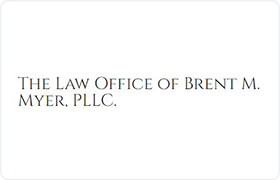Port Saint Lucie Collection Lawyer, Florida
Sponsored Law Firm
-
 x
x

Click For More Info:
-
Law Office of Brent M. Myer, PLLC
27 SE Ocean Blvd Stuart, FL 34994» view mapBankruptcy & Debt Your Local Bankruptcy Attorney
Brent M. Myer has over 15 years of consumer bankruptcy experience and has represented both debtors and creditors in the past.
772-873-7794
Karen P. Mentor, Esq
Family Law, Collection, Banking & Finance, Corporate
Status: In Good Standing Licensed: 21 Years
Aldo Beltrano
Corporate, Business Organization, Administrative Law, Collection
Status: In Good Standing Licensed: 29 Years
 Brent Myer Stuart, FL
Brent Myer Stuart, FL Practice AreasExpertise
Practice AreasExpertise
